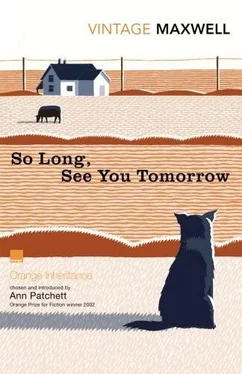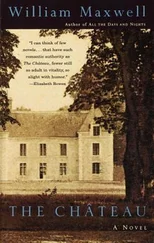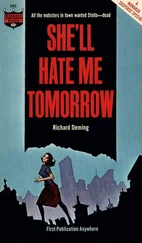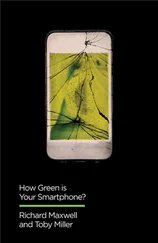Partly out of fear and partly to get away from curiosity- seekers, Walker and his wife moved into temporary quarters in town. The sheriff's office was kept busy answering calls from people who wanted to know if Clarence Smith had been found. Most of them had heard that he had drowned himself in the gravel pit. The Courier-Herald was at some pains to scotch this rumor also: "Deputy William Duffy, who conducted a thorough examination of the gravel pit the morning of the murder, does not believe that Smith or any other person drowned himself in the pit. The earth around it was soft, due to the thaw. On two sides the bank was steep and tracks would have shown clearly. At the point where it would have been possible to dive from a springboard, the water was shallow and a person would have had to wade out in the shallows before reaching deep water. Encircling the entire pit, looking for tracks in the soft earth, Mr. Duffy found absolutely nothing."
On Friday, the third of February, fifteen days after Lloyd Wilson's body was found leaning against a partition in his barn, another body was fished up from the bottom of Deer Creek gravel pit, where the deputy sheriff said it couldn't be. It was lying face down across the dredging bucket. Cletus's father, not wanting to live, had shot himself through the head. Dangling from his right wrist, at the end of a shoe- string, was a.38 revolver with two empty chambers. A flashlight protruded from his coat pocket. A strand of baling wire was wound around his neck and waist. Until it was severed by the dredging bucket it had attached the body to whatever the heavy weight was that was holding it down. In going through the other pockets the undertaker found a razor still deeply stained with red, a bloody handkerchief, a watch chain, and several shotgun shells.
At the coroner's inquest, the only witnesses were the sheriff and the three men who worked at the gravel pit. The jury returned the following verdict: "We, the undersigned jurors, do find that Clarence C. Smith came to his death by a gunshot wound inflicted by his own hand, with suicidal intent." There was no effort to establish a motive for the suicide and no mention of the murder of Lloyd Wilson. At the final hearing in the murder case, the verdict was "Death from a gunshot wound inflicted by an unknown hand."
Several hundred people tried to get a look at Clarence Smith's body while it was at the undertaker's and were turned away. The funeral was in his father's house. "Reverend A. S. Hubbard, pastor of the First Baptist Church, was in charge of the services. A male quartet, standing on the stair landing, gave a number of selections. Pallbearers were Joseph McElhiney, John Holmes, Frank Mitchell, and Roy Anderson. Numerous floral tokens of sympathy were received by the family and the funeral was one of the largest held in Lincoln in some time."
Cletus's father was not buried at the crossroads with a stake through his heart but in the cemetery along with everybody else. The day after the funeral a gunstock was found floating on the surface of the gravel pit. The following afternoon the dredging bucket brought up the rest of the gun. In the barrel was a defective shell. When the shotgun failed to go off, the shell jammed, and the ejector didn't remove it. And so Lloyd Wilson was killed with a revolver instead.
Cletus's grandfather was summoned to the sheriff's office to identify the gun and said he knew his son had a shotgun but he didn't know what it looked like or remember having seen the gun among the things his son brought with him when he moved from the farm. The sheriff then asked if Clarence Smith's sons hunted with him. "Identification of the gun" — I am quoting from the Courier-Herald—'v/as made this afternoon by the oldest son of Clarence C. Smith, who recognized the manufacturer's mark. The boy has a bicycle of the same make." Between the time that Cletus and I climbed down from the scaffolding and went our separate ways and the moment when he was confronted with the broken gun in the sheriff's office, he must have crossed over the line into maturity, and though he is referred to as a boy, wasn't one any longer.
Shortly after this his mother wrote to Lloyd Wilson's housekeeper asking that a photograph she had given him be returned to her. The Courier-Heraid got hold of this letter and published one sentence from it: "I am the most miserable woman in the world."
IV IN THE SCHOOL CORRIDOR
I have a hazy half-recollection, which I do not trust, of sitting and staring at Cletus's empty desk at school. Somebody — I think it was my grandmother — said his grandmother came and took him away. It cannot have been true; he had only one grandmother and she was living right there in town. What probably happened is that his mother kept him out of school, and when she left Lincoln he went with her.
I didn't wonder what the evening paper meant precisely when it said that Cletus's father had accused his mother of having been intimate with the murdered man. I wouldn't at that age have been so innocent as to think it meant they were on friendly terms with each other. When I thought about the matter at all I thought about the ear, which was never found. I knew it was a most terrible thing that had happened to Cletus and that he would forever be singled out by it, but I didn't try to put myself in his place or even think that maybe I ought to find out where he lived and get on my bicycle and go see him. It was as if his father had shot and killed him too.
The carpenters and plumbers and electricians finally stopped getting in each other's way and left the new house entirely to the painters. I came home with white paint on my clothes and my father suggested that I stay away from Park Place until the paint on the woodwork was dry. He was exasperated at the architect and at himself; if the concrete foundation had been sunk two or three feet lower into the ground, it wouldn't have required a great many loads of expensive topsoil to bring the lawn up to the necessary level. The day we moved in, Grace, overtired, dropped a bottle of iodine she was putting in the medicine cabinet of the upstairs bathroom and it fell into the washstand and broke. She and I spent our first evening in the new house scrubbing at what looked like bloodstains on the shining white wall.
The house was too new to be comfortable. It was like having to spend a lot of time with a person you didn't know very well. And I missed the way it used to be when there was no roof yet and the underflooring was littered with shavings and bent nails and pieces of wood 1 could almost but not quite think what to do with. Now there was nothing on the floor but rugs and you couldn't do daring things because if you did you might leave a mark on the wallpaper.
My father was always away during the middle of the week, my little brother spent two or three days at a time with my grandmother, who idolized him, and so Grace and I were often alone together. The people who lived in the houses all up and down the street were either related to her or her close friends. They were in and out of one another's houses all day long, and several afternoons a week they sat down to bridge tables. Expertly shuffling and reshuffling cards, they went to work. Auction, this was. Contract bridge hadn't yet supplanted it. Once, looking over Grace's shoulder, I saw her make a grand slam in clubs when the highest trump card in her hand was the nine. The women serenely doubled and redoubled each other's bids without ever losing their way in the intricacies of some piece of gossip, and the one who was adding up the score was still able to deplore, with the others, the shockingness of some new novel that they had all put their names down for at the library.
Fourteen was when boys graduated into long trousers and since I hadn't yet arrived at that age I was still wearing corduroy knickerbockers. When I couldn't stop reading A Tale of Two Cities, I put my long black cotton stockings across the bottom of the bedroom door so my father wouldn't see the crack of light and come in and tell me to go to sleep. I had a one-tube radio set in my room, on the desk where I studied. Above it, on the wall, was a map of North America, with colored pins for all the radio stations I had picked up. The pin that gave me the most pleasure was stuck at Havana, Cuba, which I got only once. My ears hurt from the headphones and my feet were cold all winter long. My room was on the northwest corner of the house and the hot-air registers didn't do what was expected of them. And once something happened that was so strange I couldn't get over it. I heard Eggy Rinehart, two blocks away, call his mother to the telephone. The radio set had picked up his voice out of the air, but how? From the telephone wires? Nobody could tell me.
Читать дальше












